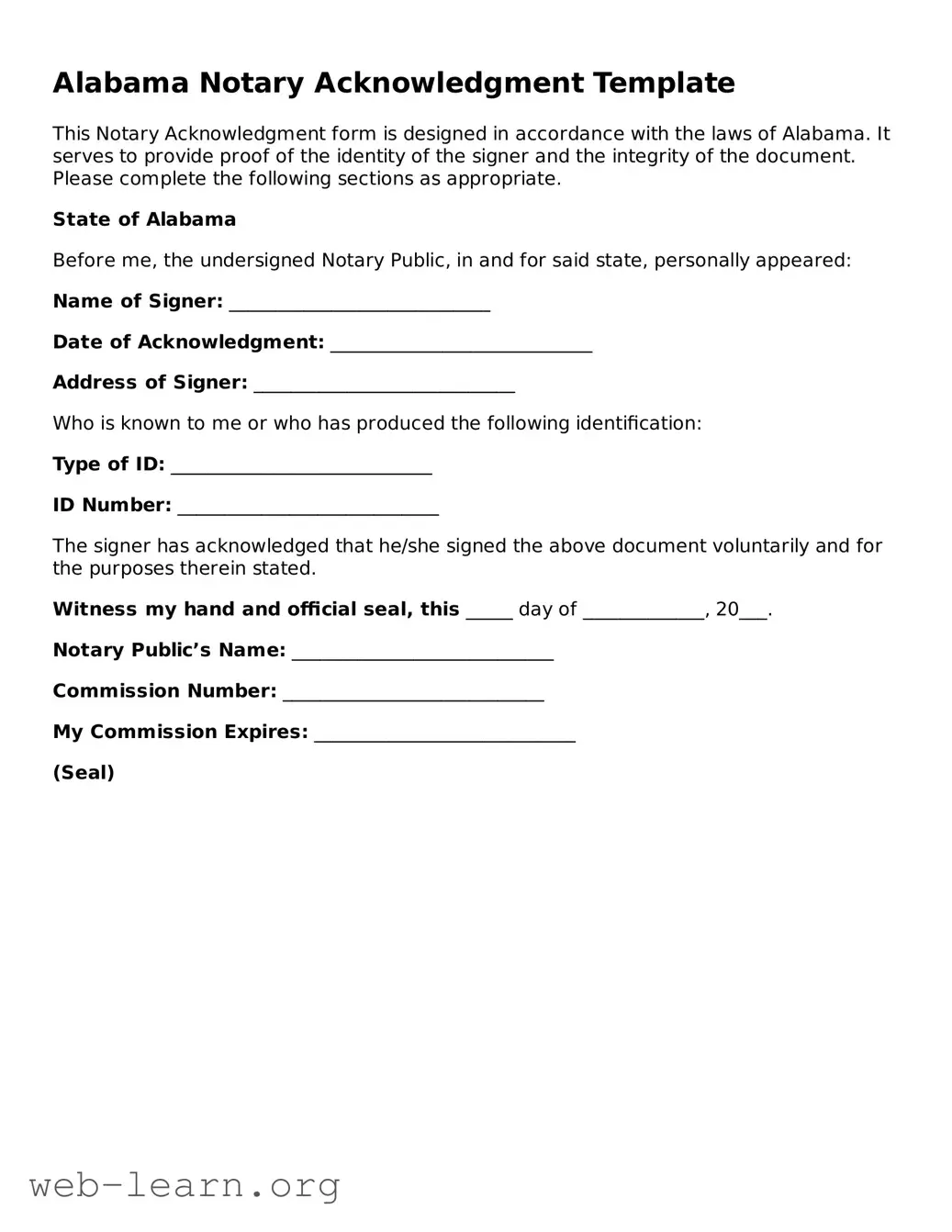Alabama Notary Acknowledgment Template
This Notary Acknowledgment form is designed in accordance with the laws of Alabama. It serves to provide proof of the identity of the signer and the integrity of the document. Please complete the following sections as appropriate.
State of Alabama
Before me, the undersigned Notary Public, in and for said state, personally appeared:
Name of Signer: ____________________________
Date of Acknowledgment: ____________________________
Address of Signer: ____________________________
Who is known to me or who has produced the following identification:
Type of ID: ____________________________
ID Number: ____________________________
The signer has acknowledged that he/she signed the above document voluntarily and for the purposes therein stated.
Witness my hand and official seal, this _____ day of _____________, 20___.
Notary Public’s Name: ____________________________
Commission Number: ____________________________
My Commission Expires: ____________________________
(Seal)
